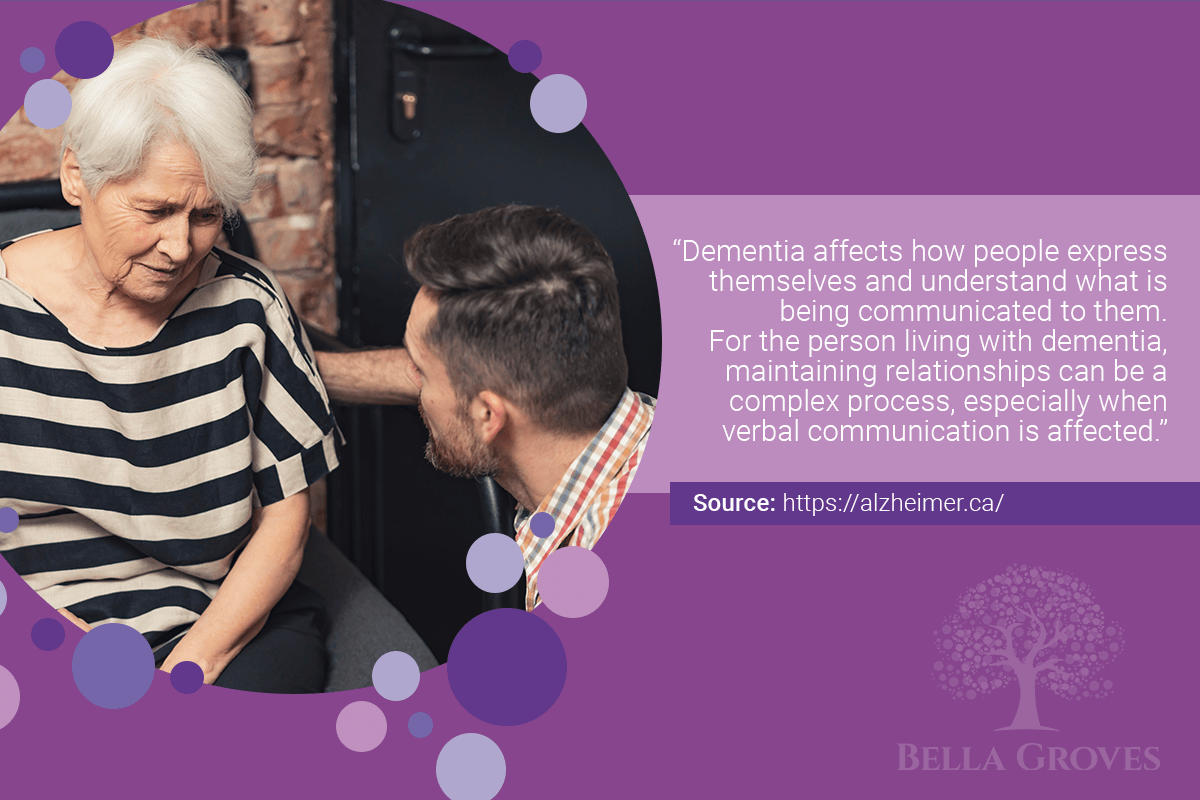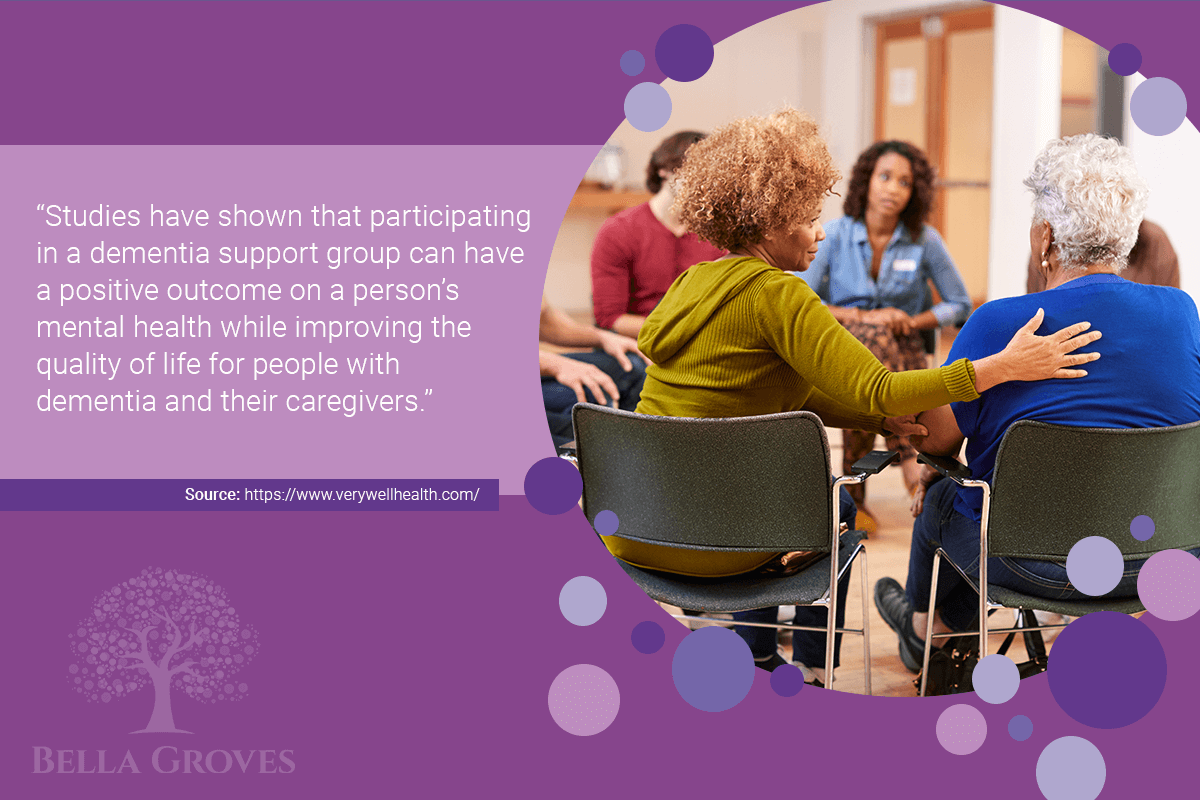
Tips for Successful Communication with a Person Living with Dementia
Memory loss is often the most prevalent symptom of dementia, but dementia can also impact a person’s ability to understand what’s being communicated to them and be understood through their communication abilities. Because dementia affects the brain and cells within, this impacts cognitive ability. A person with dementia may not be able to think as quickly as they used to, may have trouble finding the right word, or may regularly repeat themselves.
The ability to communicate is vital to a person’s quality of life. So it can become incredibly isolating and frustrating for those living with dementia; they know what they want to say but don’t know how to say it. Because of this, it’s crucial to create communication strategies for dementia care partners and understand the progression of dementia and how it impacts communication abilities so that you can continue to communicate successfully and effectively with your loved one.
Communication: Early-Stage Dementia
During the early stages of dementia, individuals are typically still able to follow conversations and maintain successful verbal communication. However, a person living with early-stage dementia might repeat themselves, begin to withdraw from social situations, or have difficulty finding the right word at times.
Throughout your dementia journey, it’s important to practice patience. Allow your loved one to speak without interruption. We often want to jump in and help, especially when caring for a person with dementia, but it’s important to the person living with dementia that they maintain as much of their autonomy as possible.
While they might struggle to find a word, make a positive assumption. “Assume that the person with dementia is capable of completing the task. If you sense frustration, try to identify the cause of the frustration before intervening. Focus on his or her current needs, rather than dwelling on the future (alz.org).”
Communication: Middle-Stage Dementia
The middle stage of dementia is typically the longest and can last for years. According to the Alzheimer’s Association, “During the middle stages of Alzheimer’s, damage to the brain can make it difficult to express thoughts and perform routine tasks.”
Communication changes during the middle stages can include trouble finding the right word, repeating questions, losing the train of thought, and relying on nonverbal communication. However, if you notice sudden changes in communication, such as slurring words, make sure to contact a doctor, as this could indicate other medical issues or side effects of medication.
To promote successful communication:
- Be mindful of your surroundings. When possible, pick a calm and quiet location without distractions, such as background noise.
- Be sure to speak slowly and clearly.
- Maintain eye contact when communicating with a person living with dementia. Because dementia can affect a person’s senses and vision, eye contact promotes safety and signals that you are speaking to them.
Asking questions can also be beneficial during this stage, as it can allow for an open-ended conversation and help to get the person back on track should they become distracted or lose their train of thought. Questions should be specific and aid the conversation. For example, instead of asking, “Are you thirsty?” which can be too open-ended, ask, “Would you like a glass of water?”
Communication: Late-Stage Dementia
A person with late-stage dementia will experience advanced difficulty with communication; some may even lose the ability to communicate verbally.
Before initiating any communication, address the person from the front and clearly identify yourself. Always smile when addressing a person living with dementia, as it promotes safety for the person, even if they may not recognize you.
When possible, use any senses to serve as communication, like sound or touch. Encourage visual cues, such as gestures or pointing, especially if they cannot get across what they want to express.
Developing Communication Strategies for Dementia
Beyond being able to share their thoughts and feelings, a person living with dementia may have trouble communicating a need, pain, or health concern. For example, urinary tract infections (UTIs) are common among older adults. However, a person living with dementia might not be able to communicate the symptoms they may be experiencing, which can lead to further health issues.
Establishing effective communication strategies for dementia care partners is vital to maintaining the health, safety, and well-being of your loved one.
Throughout your dementia journey, put yourself in your loved one’s shoes and imagine how difficult it is to rely on nonverbal gestures in order to share thoughts, feelings, and needs and how isolating and frustrating it must feel. Empathy is necessary for successful dementia care, as it gives us insight and patience, resulting in a better outcome for the person living with dementia and the care partner.
Bella Groves doesn’t just offer resources to keep families educated and prepared; our Bulverde community also provides top-of-the-line residential care for those impacted by dementia. Our highly trained care team offers constant support, engaging activities, assistance with activities of daily living, and more to ensure that your loved one is experiencing joy in every aspect of their life.


